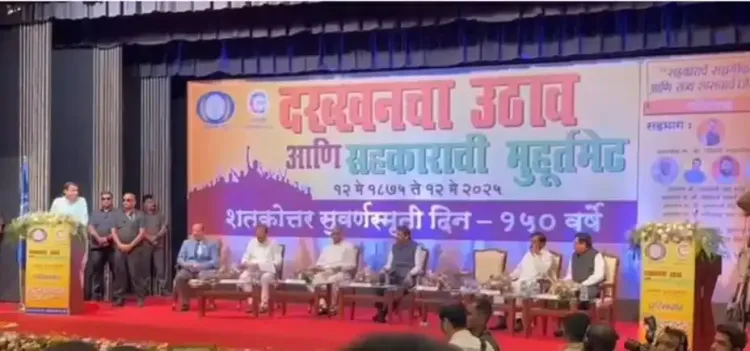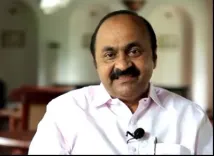Why is Nitin Gadkari Advocating for a New Law to Enhance the Cooperative Sector in Maharashtra?

Synopsis
Key Takeaways
- Nitin Gadkari advocates for a new law to enhance the cooperative sector.
- The law aims to integrate the Company Act and Cooperation Act.
- Focus on supporting the underserved population in Maharashtra.
- The need for continuous legal evolution to maintain relevance.
- Cooperative banks play a vital role in improving livelihoods.
Mumbai, May 12 (NationPress) Union Road Transport and Highways Minister Nitin Gadkari urged the Maharashtra government on Monday to formulate a detailed law that integrates aspects of the Company Act and Cooperation Act. This initiative aims to bolster the cooperative sector in Maharashtra, offering essential support to those in need.
The Minister emphasized the necessity for evolution within the cooperative sector to adapt to contemporary challenges.
"If the legal framework is not updated over time, the significance of the cooperative movement will diminish. Thus, a new law is essential, preserving the movement's core spirit while implementing necessary modifications. Since cooperation is a concurrent subject, the Maharashtra government has the authority to introduce a new law incorporating vital elements from the Company Act and Cooperative Act, along with requisite regulations," he stated during his address at the symposium for International Co-operative Day organized by the Maharashtra State Cooperative (MSC) Bank.
Gadkari expressed confidence that if legal updates are made with a focus on societal, impoverished, and cooperative sector interests, the cooperative movement will thrive.
He urged the state to recognize individuals who actively contribute to the cooperative sector's advancement while penalizing those who exploit existing laws.
These remarks were made in the presence of Chief Minister Devendra Fadnavis, Deputy Chief Ministers Eknath Shinde and Ajit Pawar, former Union Minister Sharad Pawar, and MSC Bank Administrator Vidyadhar Anaskar.
During his speech, Gadkari also reviewed the progress achieved by the cooperative sector both in Maharashtra and nationally.
Quoting Shetkari Sanghatana founder Sharad Joshi, he noted, "Success in the cooperative sector is not merely about the movement's success but rather the success of the leaders steering it."
Focusing on Maharashtra, Gadkari highlighted the importance of conducting a thorough socio-economic analysis of the cooperative movement within the state.
He encouraged the MSC Bank to prioritize this analysis, which would aid in the sector's further growth.
Gadkari pointed out that cooperative banks and institutions have stepped up to support rickshaw drivers, small vendors, and farmers with limited resources, significantly enhancing their livelihoods.
Citing his experience, he mentioned that the establishment of a cooperative sugar factory was possible due to the support from cooperative banks after public sector banks hesitated.
However, he noted that public sector banks later extended their assistance to other projects.










